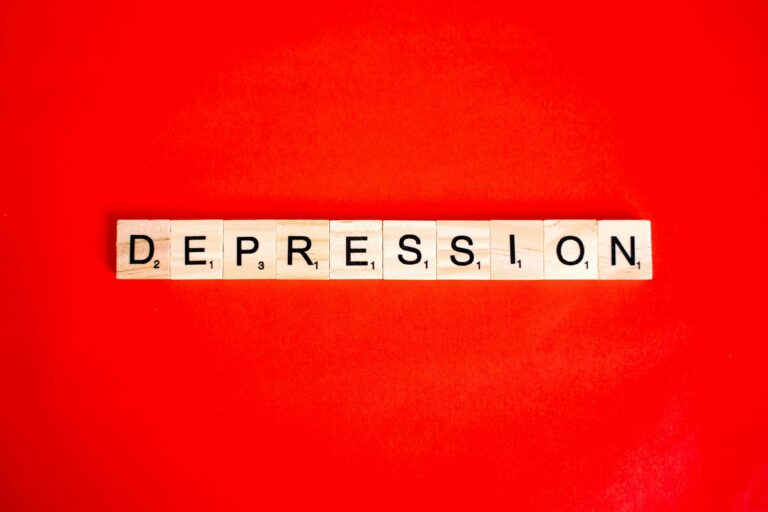The Connection Between Sleep Disorders and Obesity Among Adults

In recent years, research has increasingly highlighted a close connection between sleep disorders and obesity. Poor sleep can affect weight, while obesity can lead to sleep issues, creating a challenging cycle that impacts overall health and quality of life. At Vector Sleep Diagnostic Center, we are committed to helping adults understand how sleep and weight influence one another and providing guidance on breaking this cycle for better health outcomes. This guide explores the link between sleep disorders and obesity, the mechanisms behind this connection, and practical strategies for managing both.
How Sleep Disorders Contribute to Obesity
Sleep disorders such as insomnia, sleep apnea, and restless legs syndrome (RLS) can interfere with restorative sleep, which is essential for regulating hormones, metabolism, and mental health. Here’s how poor sleep can lead to weight gain:
- Hormonal Imbalance: Lack of sleep disrupts the balance of hunger-regulating hormones, increasing levels of ghrelin (hunger hormone) and reducing leptin (satiety hormone), leading to increased appetite.
- Increased Cravings for Unhealthy Foods: Sleep deprivation affects brain regions responsible for reward and impulse control, making individuals more likely to crave high-calorie, sugary, and fatty foods.
- Reduced Metabolism: Inadequate sleep can slow the metabolic rate, leading to fewer calories burned and more fat storage.
- Less Energy for Physical Activity: Sleep-deprived individuals often feel fatigued and lack motivation to exercise, which can further contribute to weight gain.
How Obesity Leads to Sleep Disorders
Obesity not only makes sleep disorders more likely but can also worsen existing ones. Here’s how excess weight impacts sleep quality and increases the risk of specific sleep disorders:
- Obstructive Sleep Apnea (OSA): Excess weight, especially around the neck and chest, can narrow airways, making it difficult to breathe during sleep. This results in frequent awakenings and poor-quality sleep.
- Insomnia: Obesity-related health issues such as acid reflux, joint pain, and breathing difficulties can make it hard to fall or stay asleep, contributing to chronic insomnia.
- Restless Legs Syndrome (RLS): Some studies suggest a link between obesity and RLS, potentially due to inflammation or metabolic issues associated with excess weight, which can increase discomfort and restlessness in the legs.
The Vicious Cycle Between Poor Sleep and Weight Gain
The relationship between sleep and obesity is cyclical, with each factor influencing the other in a reinforcing loop:
- Poor Sleep Quality: Sleep deprivation and disorders like OSA prevent the body from getting restful, uninterrupted sleep, leading to fatigue and hormonal imbalances.
- Increased Appetite and Cravings: Hormonal changes caused by poor sleep lead to increased hunger and cravings, often for unhealthy, high-calorie foods.
- Weight Gain: Excess caloric intake, coupled with a lack of energy for exercise, contributes to weight gain over time.
- Worsened Sleep Disorders: As weight increases, sleep disorders like OSA and insomnia become more severe, perpetuating the cycle.
Sleep Disorders Commonly Associated with Obesity
Certain sleep disorders are more commonly seen in individuals with obesity. Here’s a closer look at how these conditions impact health and weight:
1. Obstructive Sleep Apnea (OSA)
OSA is a serious sleep disorder where breathing repeatedly stops and starts due to a blocked airway. It is particularly common among those with obesity.
- Symptoms: Loud snoring, gasping for air during sleep, and excessive daytime sleepiness.
- Impact on Health: OSA increases the risk of high blood pressure, heart disease, and type 2 diabetes, all of which are linked to obesity.
2. Insomnia
Insomnia involves difficulty falling asleep, staying asleep, or waking up too early. It can be both a cause and a result of obesity.
- Symptoms: Trouble falling asleep, frequent awakenings, and feeling unrefreshed after sleep.
- Impact on Health: Insomnia leads to fatigue, reduced motivation to exercise, and increased cravings for unhealthy foods, all contributing to weight gain.
3. Restless Legs Syndrome (RLS)
RLS is a condition that causes an uncomfortable urge to move the legs, especially at night, which can lead to sleep disturbances.
- Symptoms: Tingling, itching, or crawling sensations in the legs, often leading to frequent nighttime awakenings.
- Impact on Health: Poor sleep quality associated with RLS can increase appetite and reduce energy, contributing to obesity.
Strategies for Managing Sleep Disorders and Obesity
Addressing both sleep disorders and obesity is key to breaking the cycle and improving overall health. Here are some effective strategies:
1. Prioritize Consistent Sleep Hygiene
Maintaining a regular sleep schedule and a calming bedtime routine can help improve sleep quality:
- Go to bed and wake up at the same time each day, even on weekends.
- Create a relaxing pre-sleep routine, such as reading or meditating, to signal to your body that it’s time for rest.
- Avoid screen time and bright lights at least an hour before bed, as blue light can interfere with melatonin production.
2. Eat a Balanced, Nutritious Diet
A balanced diet that supports weight loss can help reduce symptoms of sleep disorders while improving overall health:
- Prioritize whole foods such as vegetables, lean proteins, whole grains, and healthy fats.
- Limit sugary and processed foods, which can disrupt blood sugar and lead to sleep disturbances.
- Avoid heavy meals before bed, as these can cause discomfort and make it harder to fall asleep.
3. Get Regular Physical Activity
Exercise helps regulate sleep patterns, improve mood, and promote weight loss. For best results:
- Aim for at least 150 minutes of moderate exercise per week, such as walking, swimming, or cycling.
- Exercise earlier in the day rather than close to bedtime, as physical activity can be stimulating.
4. Seek Treatment for Obstructive Sleep Apnea (OSA)
If you suspect sleep apnea, seeking treatment is essential. Treatments like CPAP (Continuous Positive Airway Pressure) therapy can significantly improve sleep quality and support weight management.
5. Manage Stress and Anxiety
Stress and anxiety can lead to emotional eating and worsen sleep quality. Here are some strategies to reduce stress:
- Practice mindfulness meditation or deep breathing exercises to relax the mind before bed.
- Set aside time to unwind after a busy day, incorporating calming activities like reading or stretching.
How Vector Sleep Diagnostic Center Can Help
Addressing sleep disorders and obesity requires a personalized approach. At Vector Sleep Diagnostic Center, our team specializes in diagnosing and treating sleep disorders, with a focus on helping patients achieve healthier sleep and manage weight-related concerns. From sleep studies to customized treatment plans, we work with you to improve your quality of life through better sleep and overall health.
Call us at 1 718-830-2800 or email vectorsleep@gmail.com to schedule a consultation today.
Frequently Asked Questions (FAQs)
1. Can losing weight help improve sleep disorders?
Yes, weight loss can reduce the severity of sleep disorders, especially sleep apnea, by decreasing pressure on the airways and improving overall health.
2. How much sleep should I aim for to support a healthy weight?
Adults should aim for 7-9 hours of quality sleep each night, as adequate rest supports weight management and reduces cravings.
3. What are the warning signs that sleep problems are impacting my weight?
Frequent awakenings, daytime fatigue, increased cravings for unhealthy foods, and difficulty with weight loss despite a healthy diet may indicate sleep issues.





